6. Enter the Void (2009)
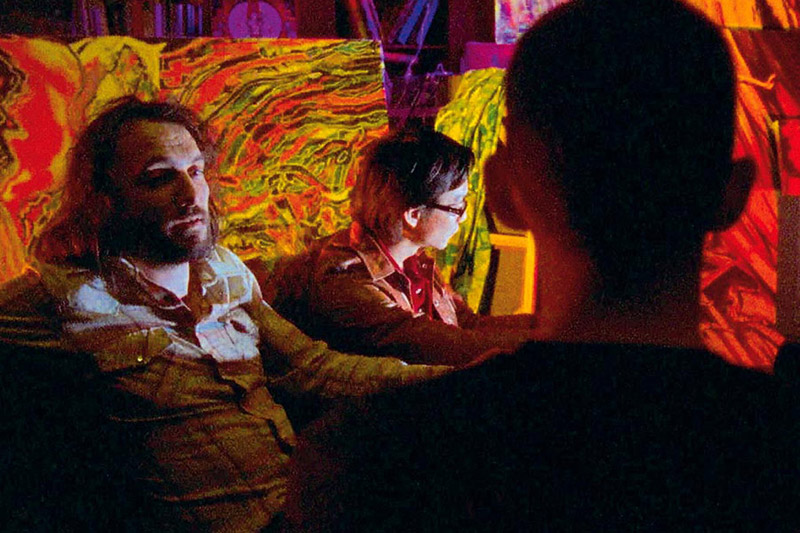
Gaspar Noé is the sort of polarizing high-profile auteur people either love to hate or hate to love, but despite ruffling feathers and splitting fans and critics in 2009, “Enter the Void” undeniably holds up today as a towering cinematic tour-de-force that could only have been made by a mad genius with big hubris and an even bigger talent behind the camera.
This psychedelic story drawn from the Tibetan Book of the Dead about a down-and-out two-bit pusher (Nathaniel Brown) living on the fringes of Tokyo with her orphan sister (Paz de la Huerta) who meets his demise during a drug deal gone bad comes at you thick and fast with a delirious blend of virtuoso camerawork and narrative hijinks that might give you a headache at first but effectively resembles what it may feel to be stuck in the limbo watching the aftermath of your own physical death.
It’s a doozy of a film that is certainly not for the faint of heart, but also the perfect gateway to discovering the catalog of one of the most daring voices in world cinema.
7. The Tree of Life (2011)
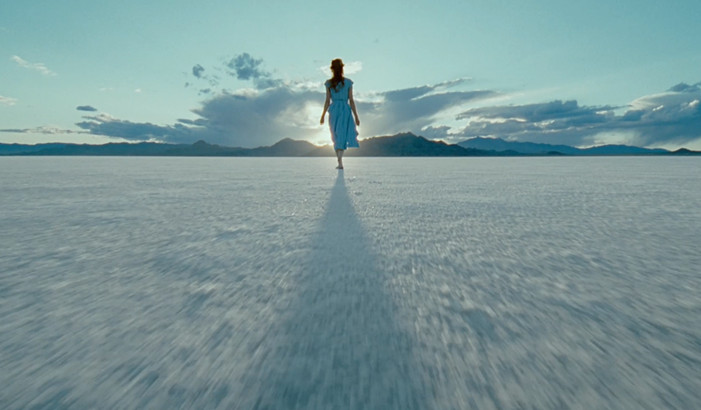
There are a few things you presume you’re getting when you press play on a Terrence Malick movie about mankind’s place in the cosmos, and “The Tree of Life” ticks off all boxes and then some. But those who don’t mind sitting through almost two-and-a-half fours of poetic voiceovers are bound to find plenty to chew on and even bawl their eyes out when they least expect it with Malick’s long-gestating, millennia-spanning autobiographical family drama.
One of the great films ever made about memory, faith, trauma, and loss, this 2011 Palme d’Or winner shot by Emanuel Lubezki effortlessly bounces through time to weave through different chapters in the life of a middle-aged executive (Sean Penn) who reminisces about his peaceful but tragedy-stricken childhood in 1950s rural Texas. It’s an ambitious, all-encompassing, and transcendent movie overflowing with lofty philosophical ideas and existential enquiries that linger in your mind and a long fuse that will somehow soothe and startle your soul at the same time. People will still be talking about this movie in 50 years’ time.
8. Celine and Julie Go Boating (1974)
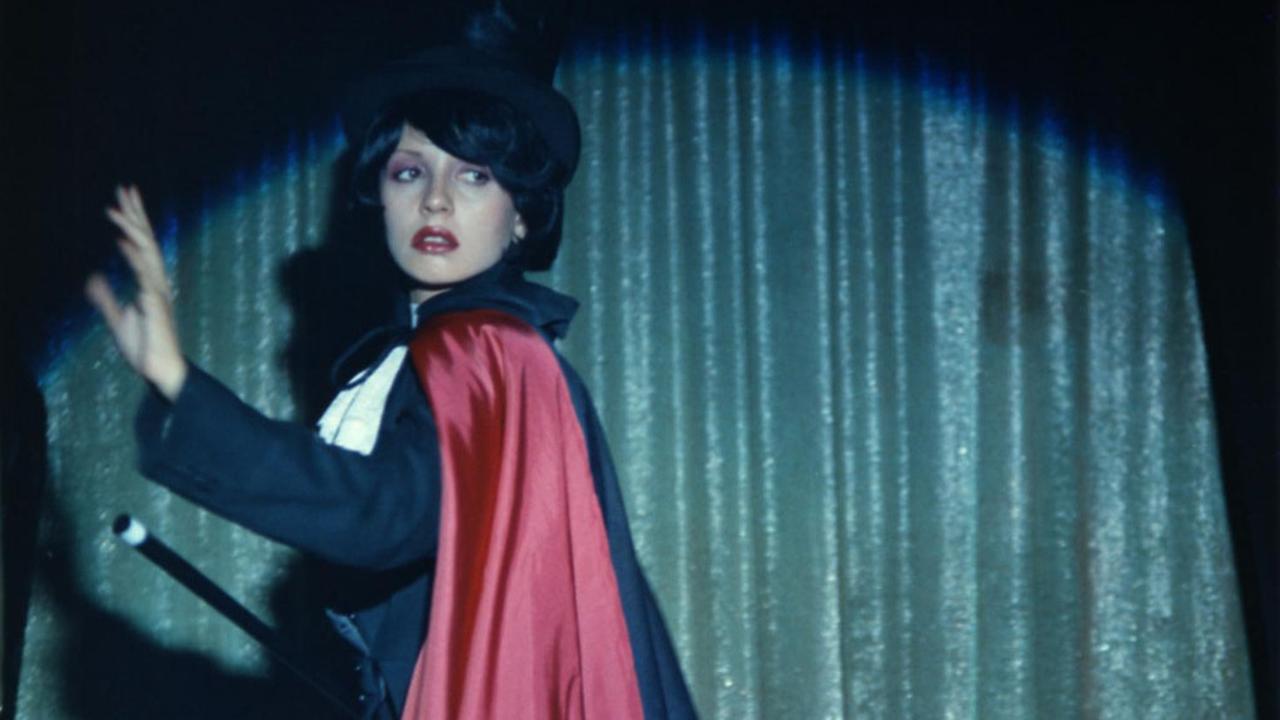
A film that reads a bit like an awesome cross between Alice in Wonderland, Wes Anderson and “Persona” all funneled through Jacques Rivettes’ postmodern gaze, this high-water mark of the Nouvelle Vague movement is carried by a one-two punch of powerhouse performances in Juliet Berto and Dominique Labourier as the titular pair of whimsical young women who meet by chance and slip in and out of different alternate realities and layers of narrative after eating magical candy.
If that sounds like a bonkers set-up just you wait until you see Celine and Julie wreak havoc all across 1970s Paris before stumbling upon a pastiche murder-mystery melodrama set in an old-fashioned manor. Those still on the fence of sitting through a 193-minute-long French movie are legitimately missing out on one of the most witty, delightful, and wildly unpredictable cinematic giddy rushes of the 1970s or any decade (and yes, rest assured, they do go boating at some point).
9. Jeanne Dielman, 23, Quai du Commerce, 1080 Bruxelles (1975)
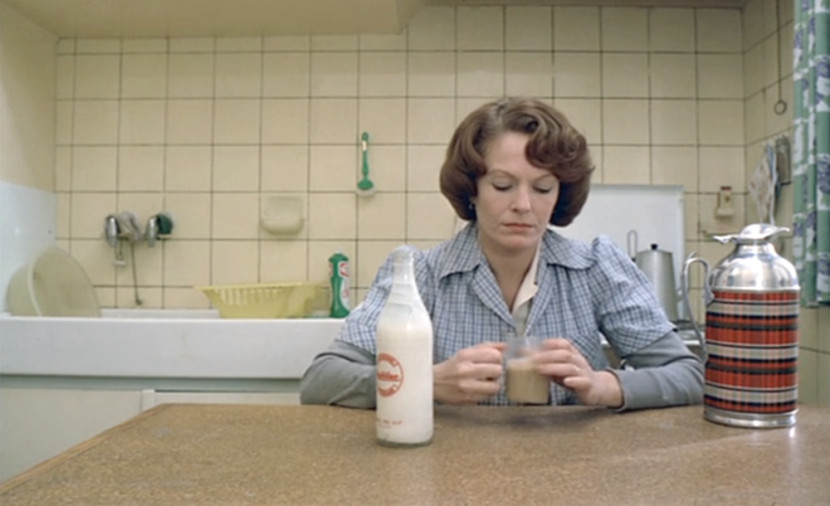
It’s no backhanded compliment to say that the greatest movie of all time according to the last edition of the Sight & Sound decennial poll turns boringness on its head. As a matter of fact, the infamously unhurried pace of “Jeanne Dielman” that tends to irritate unassuming viewers is actually not a bug, but a deliberate artistic choice by Chantal Akerman.
In rigorously detailing the mundane domestic chores of a middle-aged Belgian housewife (Delphine Seyrig), the Belgian director delivered the ne plus ultra of slow cinema as well as a bracingly compassionate feminist manifesto that makes the viewer feel every minute of dull repetition and quiet despair experienced by the titular character — turning the story of a single mother’s pent-up frustration into the story of every woman who’s ever been taken for granted in their life.
At just under three and a half hours, this study of stasis might turn certain viewers off in its uncompromising spareness, but it’s an experience that slowly creeps up on you and leaves a lasting impression by the time the credits roll.
10. The Saragossa Manuscript (1965)
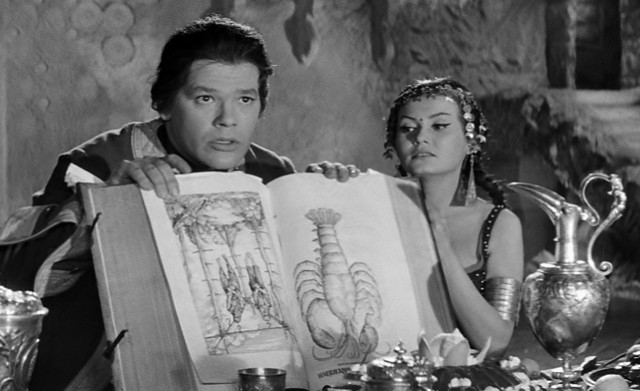
Good luck trying to keep up with this head-spinning, three-plus hour novel adaptation by Polish master Wojciech Has, a cinematic jigsaw puzzle that puts your brain through the wringer with a Möbius strip structure that that stops just shy of utter mayhem and resembles that of a Russian nesting doll with infinite narrative layers all stacked one on top of another.
Set in the Napoleonic wars, “The Saragossa Manuscript” takes place in a small town in the north of Spain as we’re introduced to two bickering officers of opposite sides who stumble upon an old diary in an isolated inn. Next thing you know, the film uses this initial framework to frantically zigzag between crisscrossing narrative strands and stories built within stories that keep taking a left turn and wildly digressing into another when you least expect it. Despite being singled out for praise by the likes of Luis Buñuel, Martin Scorsese, and David Lynch, “The Saragossa Manuscript” is nowhere near as seen or appreciated today as it wholly deserves, but it goes without saying that any film that might have influenced the works of such esteemed luminaries is worth tracking down.